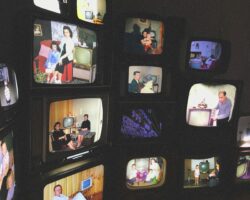New scientific research links insomnia to these five personality types
Are you an anxious person? Perfectionist? Are they prone to depression? Then chances are good that you are sleeping very badly. It has long been known among sleep experts that certain personality types are prone to insomnia, and a new publication in the influential medical journal The Lancet only confirms this fact.
Researcher at the Netherlands Institute of Neurology Tessa Blanken and her team studied the personality traits and life histories of 2,224 test subjects diagnosed with insomnia from 2010 to 2016 and identified five personality types that are at risk. Can you find yourself among them?
Type # 1, or “very upset people”: They feel very agitated, active and anxious right before bed and tend to be depressed.
Type # 2 – “Moderately upset, praise-sensitive”: Similar to Type 1 in that their minds also start tossing around before bed, but they tend to be more receptive to pleasurable emotions. In other words, people who are “overly happy” in the evening are also at risk.
Type # 3 – “grieved or insensitive” – inveterate pessimists: They are practically impervious to positive feelings, they see a catch everywhere, concentrate on the negative and cultivate insomnia in themselves.
“Fours” – “slightly distressed or reactive”: These people develop insomnia against the backdrop of financial turmoil and, less commonly, relationship problems. While most people can briefly lose sleep after a breakup, type # 4 plunge into persistent and prolonged insomnia.
Type # 5, or “slightly distressed, with low reactivity,” also struggles to sleep: This type demonstrates a low level of motivation against the background of childhood traumas, which begin to actively manifest themselves and give “plug” insomnia closer to forty years.
Small but important addition. Rafael Pelayo, M.D. at the Stanford Sleep Medicine Center, has identified another type prone to insomnia. It’s about perfectionists. He made this discovery while working in Silicon Valley, where many software engineers complain of insomnia, as “their brain does not want to leave the problem unresolved.” Paradoxically, you cannot sleep because you are too good at your profession. But sleep loss makes people less productive and less focused on work, which means your insomnia is likely to lead to fewer problems resolved. And this is a vicious circle.






